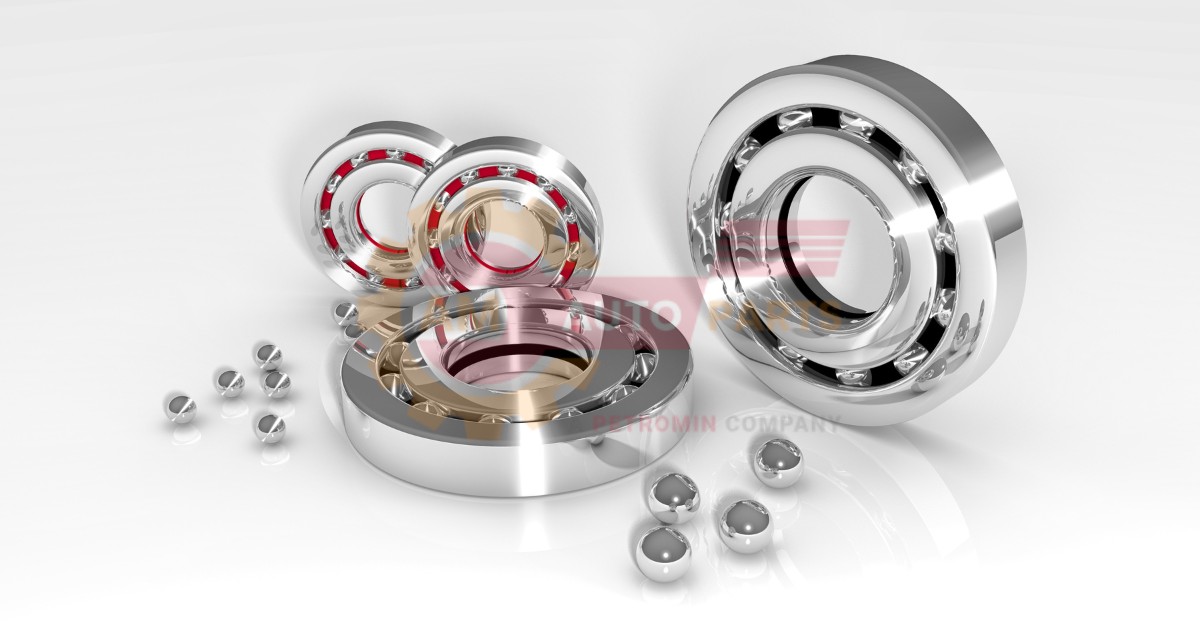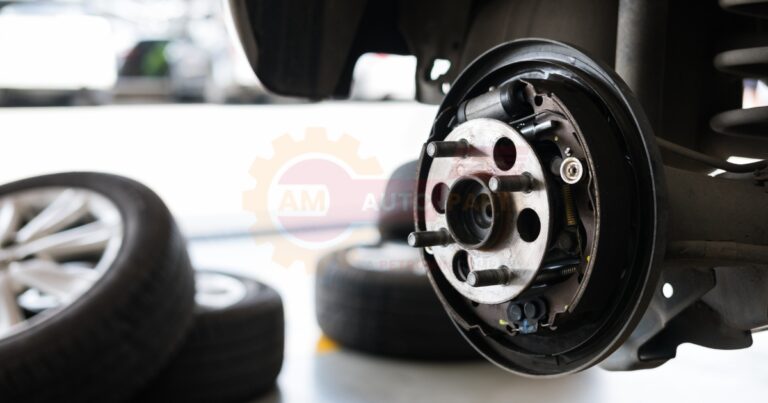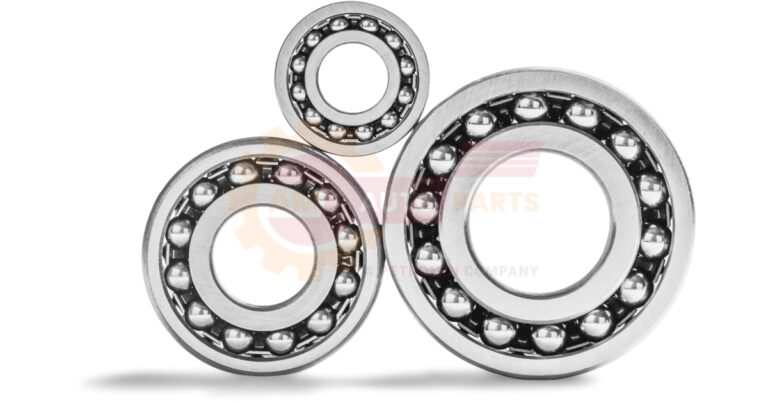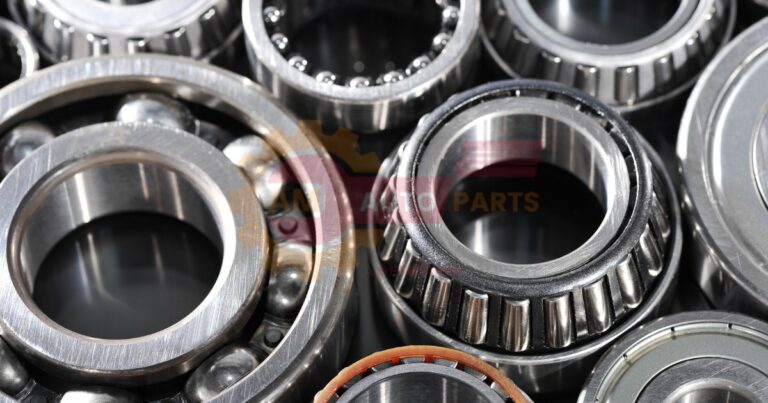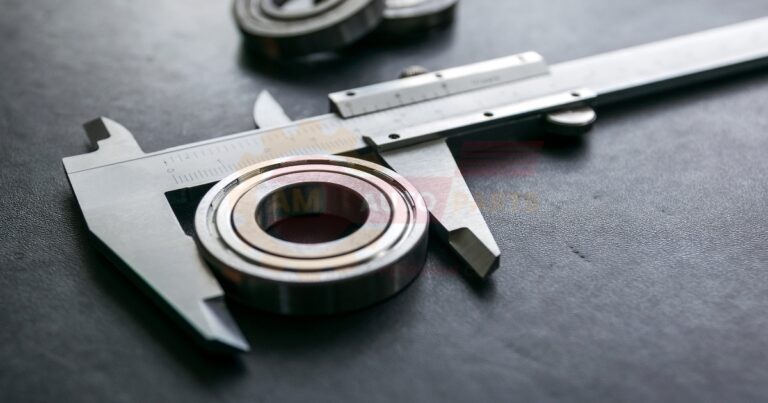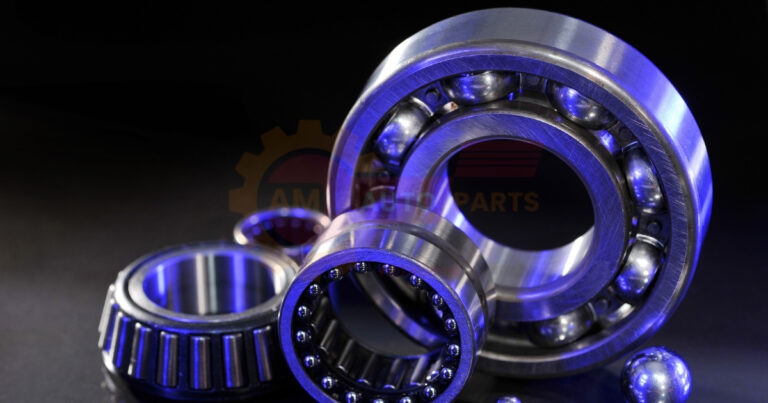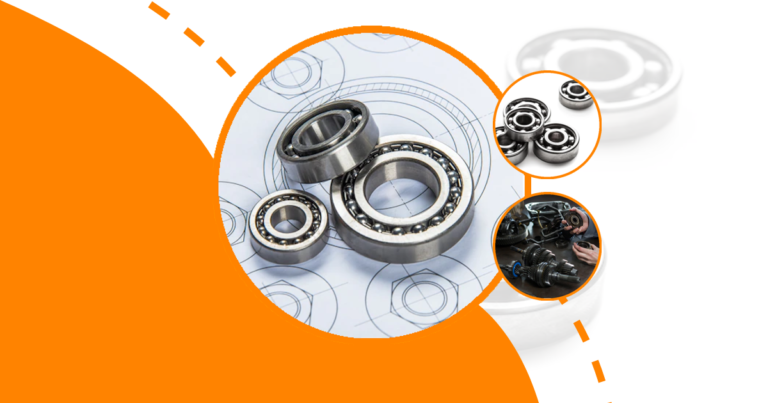Signs of Worn Car Bearings
- Unusual noises: One of the most common signs of worn car bearings is a grinding or humming noise coming from the wheels. This noise may become more pronounced when turning.
- Wheel vibration: Worn bearings can cause vibrations in the steering wheel, which can be felt especially at higher speeds.
- Uneven tyre wear: If your car’s bearings are worn, you may notice uneven tyre wear. This can be due to the wheels not rotating smoothly.
- ABS warning light: In some cases, a faulty bearing can trigger the ABS warning light on your dashboard. This is because the wheel speed sensor may detect irregularities caused by the worn bearing.
- Wheel play: If you notice excessive play or looseness in the wheels when you try to wiggle them, it could be a sign of worn bearings.
Table 1: Signs of Worn Car Bearings
| Signs of Worn Car Bearings |
| Unusual noises |
| Wheel vibration |
| Uneven tire wear |
| ABS warning light |
| Wheel play |
Explanation of Table 1: The table above summarizes the common signs of worn car bearings. Unusual noises, such as grinding or humming sounds, are often the first indication of bearing wear. Wheel vibration, uneven tyre wear, the activation of the ABS warning light, and wheel play are additional signs that should not be ignored. If you experience any of these symptoms, it is important to have your bearings inspected and replaced if necessary.
Common Causes of Car Bearing Failure
- Lack of lubrication: Insufficient or contaminated lubrication can lead to increased friction and wear on the bearings, causing them to fail prematurely.
- Water and dirt ingress: Exposure to water, dirt, and other contaminants can accelerate bearing wear and corrosion, leading to failure.
- Overloading: Carrying excessive weight or towing heavy loads can put additional stress on the bearings, causing them to wear out faster.
- Improper installation: Incorrect installation techniques or the use of incorrect tools can damage the bearings, leading to premature failure.
- Age and mileage: Over time, bearings naturally wear out due to normal usage and the accumulation of mileage.
Table 2: Common Causes of Car Bearing Failure
| Common Causes of Car Bearing Failure |
| Lack of lubrication |
| Water and dirt ingress |
| Overloading |
| Improper installation |
| Age and mileage |
Explanation of Table 2: Table 2 provides an overview of the common causes of car bearing failure. Lack of lubrication is a leading cause, as it increases friction and wear. Water and dirt ingress, often due to driving in wet or dusty conditions, can also lead to premature bearing failure. Overloading the vehicle, improper installation, and the natural wear and tear that comes with age and mileage are additional factors that can contribute to bearing failure.
Bridge: Understanding the signs of worn car bearings and the common causes of bearing failure is crucial for maintaining the safety and performance of your vehicle. By recognizing these indicators, you can take appropriate action to address any issues and prevent further damage.
Car Bearing Maintenance Tips
- Regular inspection: It is important to visually inspect your car’s bearings regularly for any signs of wear or damage. This can be done during routine maintenance or when you notice any of the aforementioned signs.
- Proper lubrication: Ensure that the bearings are properly lubricated according to the manufacturer’s recommendations. This will help reduce friction and extend their lifespan.
- Avoid water exposure: Minimize driving through deep puddles or standing water, as excessive water exposure can lead to bearing corrosion and premature failure.
- Timely replacement: If you suspect that your car’s bearings are worn or damaged, it is crucial to have them replaced promptly. Delaying replacement can lead to further damage and potentially unsafe driving conditions.
- Professional assistance: If you are unsure about inspecting or replacing your car’s bearings, it is recommended to seek the help of a qualified mechanic.
Table 3: Car Bearing Maintenance Tips
| Car Bearing Maintenance Tips |
| Regular inspection |
| Proper lubrication |
| Avoid water exposure |
| Timely replacement |
| Professional assistance |
Explanation of Table 3: Table 3 outlines essential car-bearing maintenance tips. Regular visual inspections allow you to catch any signs of wear or damage early on. Proper lubrication, following the manufacturer’s guidelines, helps to reduce friction and extend the lifespan of the bearings. Avoiding excessive water exposure, timely replacement when necessary, and seeking professional assistance when unsure are all important steps in maintaining the health of your car’s bearings.
In conclusion, understanding how long car bearings typically last and recognizing the signs of worn bearings is crucial for vehicle safety and performance. Regular maintenance, including proper lubrication and timely replacement, can help extend the lifespan of your car’s bearings. By following these guidelines and seeking professional assistance when needed, you can ensure the smooth and safe operation of your vehicle. Car Bearing Lifespan Comparison:
| Bearing Type | Lifespan (in miles) |
| Ball Bearings | 100,000 – 150,000 |
| Roller Bearings | 150,000 – 200,000 |
| Tapered Roller Bearings | 200,000 – 250,000 |
| Needle Bearings | 250,000 – 300,000 |
Car bearings have varying lifespans depending on the type. Ball bearings typically last between 100,000 and 150,000 miles, while roller bearings can last from 150,000 to 200,000 miles. Tapered roller bearings have a longer lifespan, ranging from 200,000 to 250,000 miles, and needle bearings can last even longer, with a lifespan of 250,000 to 300,000 miles. “Rev up your ride with AM Autoparts – Shop now and experience the ultimate performance and reliability for your vehicle! Bearings hub essentials are important parts that help wheels spin smoothly They keep the wheel connected to the car and make sure it turns properly
Automobile Bearing Quantity refers to the number of bearings used in a vehicle These bearings help parts move smoothly and reduce friction in the automobile Bearing replacement guide shows you how to swap out old bearings for new ones It helps you fix machines by replacing worn-out parts called bearings
Wheel bearing expense is the cost of replacing worn-out bearings in your car’s wheels These parts help your wheels spin smoothly and need to be changed when they get old or damaged Crankshaft bearing types are special parts that help the crankshaft spin smoothly inside an engine They come in different shapes and sizes to fit various engines and support the crankshaft’s movement
Identify noisy wheel Listen for unusual sounds when your car is moving to Bearing adjustment importance Proper bearing adjustment helps machines run smoothly and last longer It also reduces noise and prevents parts from wearing out too quickly
Wheel bearings identification Noisy wheel identification Bicycle bearing fundamentals
Crankshaft bearing fundamentals
How Long Do Car Bearings Last?
Car bearings play a crucial role in the smooth operation of a vehicle’s wheels. Over time, these bearings can wear out and require replacement. Here are five frequently asked questions about the lifespan of car bearings, along with their answers:
Are all car bearings the same?
No, car bearings come in different types and designs, and their lifespan can vary depending on various factors. The two main types of car bearings are wheel bearings and engine bearings. Wheel bearings are located in the hub assembly and support the weight of the vehicle while allowing the wheels to rotate smoothly. Engine bearings, on the other hand, are found within the engine and help reduce friction between moving parts.
What factors affect the lifespan of car bearings?
Several factors can influence the lifespan of car bearings. The quality of the bearings, the driving conditions, and the maintenance practices all play a role. High-quality bearings made from durable materials tend to last longer than lower-quality ones. Additionally, driving in harsh conditions such as off-road terrains or extreme temperatures can accelerate wear and tear on the bearings. Regular maintenance, including proper lubrication and timely replacement, can significantly extend the lifespan of car bearings.
To further explain the factors affecting the lifespan of car bearings, let’s take a look at the following table:
| Factors | Impact on Bearing Lifespan |
| Quality of Bearings | High-quality bearings tend to last longer due to their superior construction and materials. |
| Driving Conditions | Harsh conditions like off-road driving or extreme temperatures can accelerate wear and reduce bearing lifespan. |
| Maintenance Practices | Regular maintenance, including proper lubrication and timely replacement, can significantly extend the lifespan of car bearings. |
